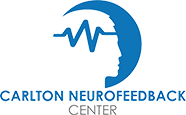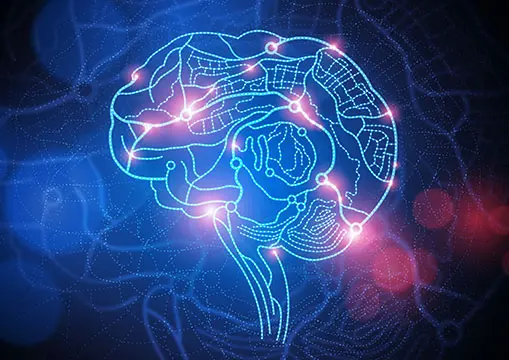Neurofeedback is a holistic approach to improving your brain’s overall performance, which can benefit healthy individuals and those with brain-based conditions. However, it is such a specialized, niche field of applied neuroscience, even though it has been in use since the 70s, that many health professionals have termed it complementary and alternative as if it were in direct competition with other modes of care. The truth is neurofeedback has been well studied, and the research continues to evolve, which begs the question – why don’t more people know about it? Learn more about the last five myths that complete our series about myths and facts about neurobiofeedback that shed more light on why neurofeedback is not more well-known and used (See Parts 1 and Part 2 of this series).
Neurofeedback is not widely used.
Neurofeedback has so many applications that some might surprise you. It can be used in healthy individuals to help them better focus, be emotionally resilient, and achieve creativity and peak performance. It can also help people recover from trauma and injury.
- NASA – Neurofeedback is part of the astronaut training program to help with focus and mental clarity. It has also resulted in software that has been adapted to other applications.
- Elite athletes – Neurofeedback has been used to increase mental focus, recover from head injuries, and improve sports performance. References can be found to US Olympic athletes, Canadian Olympians, NBA, NFL, MLB, X Games, MLB, golf, volleyball, boxing, and more.
- Fine Arts: Neurofeedback has been used to boost creativity, focus, and resiliency in acting, musical performance, and dance.
Neurofeedback is the cure-all intervention that can help resolve any ailment.
No. Neurofeedback, while improving the functioning and efficiency of an individual’s brain function, cannot “cure” autism, brain injuries, cognitive decline, and disabilities. It can, however, help expand the limits of what is possible in many cases. We have seen children on the autism spectrum better manage their moods and make gains academically. We have seen young adults living with cerebral palsy gain more range of motion. We know it can reduce the number and frequency of seizures, but it will not change the underlying diagnosis. Neurofeedback is most effective in helping alleviate mood disorders and combatting chronic stress. In particular, it reduces symptoms for those with Bipolar Disorder, Depression, Anxiety, posttraumatic stress disorder (PTSD), Attention Deficit Disorder (ADD), learning disabilities, and more. It can also help improve functioning for people experiencing migraines, concussions, traumatic brain injuries, and insomnia.
All neurofeedback is the same.
Neurofeedback is a very specialized field of applied neuroscience, which requires knowledge of brain anatomy and function and how to train the brain to reach its optimal potential. But if it’s done by someone inexperienced, it can have a detrimental effect, causing someone to become more irritable, worsen symptoms, or not work. That’s why it’s important to work with a certified health practitioner who keeps up with the current research, which is constantly evolving, and who has the experience to adjust the training protocols to your unique situation. Also, consider whether it is important to you to have a treating health professional who has had their own experience with neurofeedback so they can better empathize with your situation and understand what you are going through and your goals for treatment.
My physician didn’t recommend neurofeedback, so it must not be a legitimate treatment.
Not true. There are several reasons why the medical profession has not embraced neurofeedback more strongly. First, most medical doctors do not receive any education or training in this modality because it is so specialized. They may never have heard of it, even if they are educated in functional medicine, integrated treatment, neurology, or psychiatry. Even a lot of mental health professionals, including psychiatrists, psychologists, or counselors, do not receive information or training about neurofeedback until they seek it out on their own. Physicians have their diagnostic tools, medicines, and defined treatment protocols they know well and use repeatedly. Some estimate that the average primary care physician spends 8-15 minutes with each patient, which is not enough time to assess a complete picture of each individual’s health and wellness. On the other hand, neurofeedback providers employ a more holistic approach toward treatment that can positively affect the body and mind in many ways, and personalized patient care is part of what makes them different. It is no wonder primary care physicians do not often recommend neurofeedback.
The research for neurofeedback is inconclusive or incomplete.
Not true. Research has been done on neurofeedback, and its effects on various brain-based conditions have been going on since the 1970s and earlier. While it is true that there are not a lot of large, controlled, double-blind studies that have been done, many reasons can account for that. For one, neurofeedback is tailored to the individual, so having large studies is inherently more problematic. If you can get an Institutional Review Board (IRB) to approve a study of this nature, many will not approve a study that withholds treatment that researchers expect to help people just to be able to say a study has proper control. Those who say that neurofeedback’s effects result from the placebo effect miss the fact that neurofeedback research began using animal models unaffected by the placebo effect. We’ve collected links to neurofeedback research and collected bibliographies to help you get the facts and make your own decisions.
Ready to Give Neurofeedback a Try?
If you’re reading this, you are probably curious about how neurofeedback might improve your life. This is why we offer a free eBook to learn more about how neurofeedback works, why a brain map (qEEG) is helpful, and what someone can expect from a regimen of neurofeedback. Contact Dr. Ed Carlton at (703) 335-9149 or make your appointment online for a free, no-obligation evaluation. We want to learn about your concerns and your goals for treatment, and we are more than willing to work with other health professionals. If you’re tired of being treated like a number and looking for answers, try our clinic, Carlton NeuroFeedback Center. We are located in Manassas, Virginia, and serve the greater Washington, DC Metro area.


